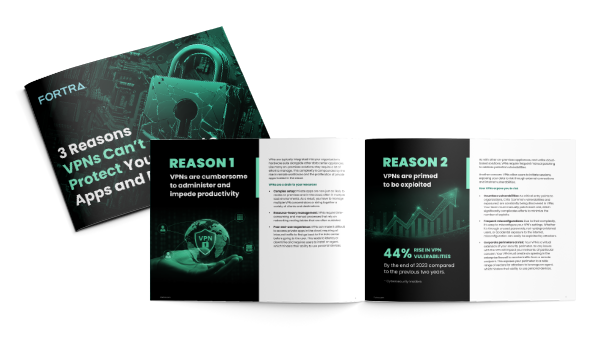
Virtual private networks (VPNs) emerged when remote work was less common, and people only occasionally required access to corporate resources.
Most experts previously believed security could be maintained by confining users, data, and applications within a secure perimeter and by restricting users to company-issued devices. VPNs essentially extended this implicit trust by granting all users access to corporate resources upon authentication.
With the pandemic causing a subsequent rise in hybrid work environments that continues to this day, however, times have changed. Users now work virtually anywhere, often via devices and networks organizations don’t or can't manage. Private apps, which continue to house some of these organizations' most valuable data, are increasingly in the cloud. As a result, the secure perimeters of the past are no longer sufficient. To effectively safeguard your data you need to first understand the shortcomings of VPNs.
In this eBook, learn the three reasons why VPNs are inadequate in today’s cloud-first, hybrid work environment, and why Zero Trust Network Access (ZTNA) is the superior solution for comprehensive data protection.